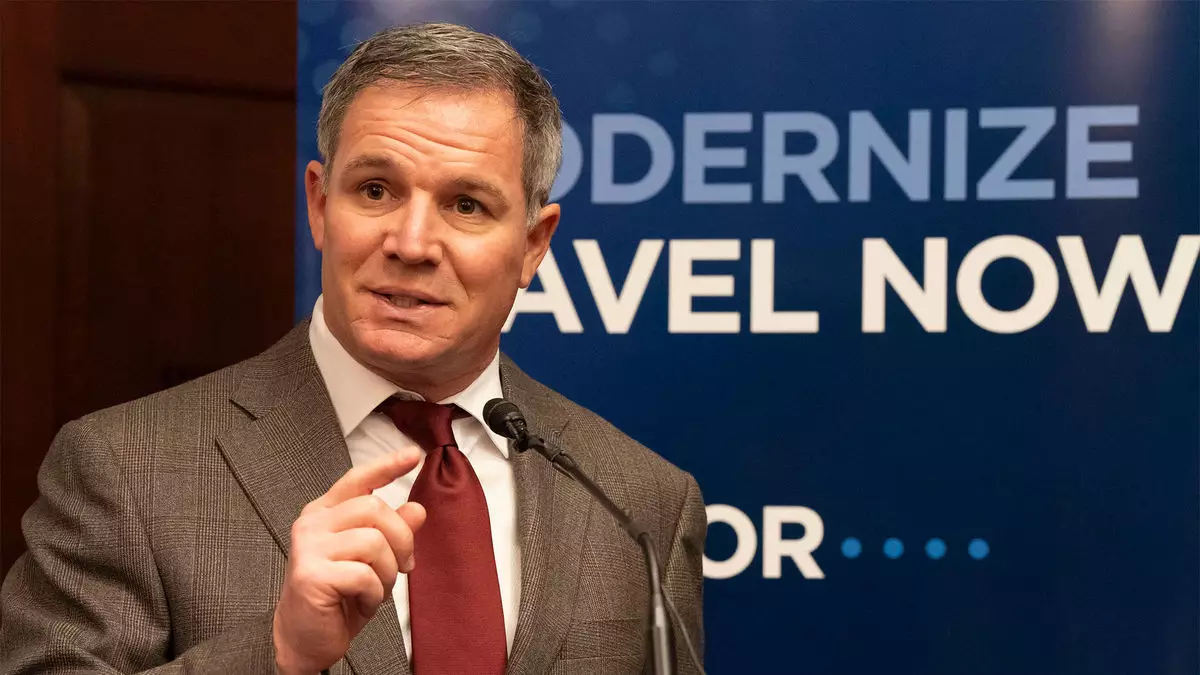The United States stands at a crucial juncture as it prepares for an unprecedented influx of international travelers. Anticipated to coincide with major global events, including the 2026 FIFA World Cup, the 2028 Olympic and Paralympic Games, and America’s 250th anniversary, this influx poses substantial challenges for the nation’s aging air travel infrastructure. The U.S. Travel Association has raised alarms over the potential for overwhelmed systems, underscoring the urgent need for modernization and reform within the air travel sector.
According to a report by the U.S. Travel’s Commission on Seamless and Secure Travel, these upcoming events could usher in up to 40 million international visitors, generating an estimated $95 billion in economic activity. This staggering figure highlights the critical role that travel plays in bolstering the U.S. economy. However, failure to adequately prepare could jeopardize these potential gains. Without a proactive approach to modernizing air travel infrastructure, millions of visitors might experience frustrating delays, thus tarnishing the U.S. reputation as a premier travel destination.
Strategic Recommendations for Improvement
In light of these pressing challenges, the commission has outlined several key recommendations. Foremost among these is the establishment of a White House task force focused on creating a comprehensive plan to enhance the air travel experience over the next decade. This task force would be responsible for evaluating resource allocation, prioritizing investments, and coordinating efforts across various government agencies.
Additionally, the report calls for expedited visa processing and increased staffing at U.S. consulates to facilitate smoother entry for visitors. Investments in cutting-edge airport screening technologies and the integration of biometrics are vital steps toward minimizing wait times and enhancing security measures. By fully staffing customs offices at airports, the U.S. can significantly reduce the hours-long waits often faced by returning travelers.
Geoff Freeman, CEO of the U.S. Travel Association, has emphasized the urgency of these recommendations. “This is a once-in-a-generation chance to modernize travel and enhance security,” he stated during a recent Capitol meeting. He argues that the moment requires not just incremental reforms but bold action to unlock a potential $100 billion opportunity within four years. The message is clear: complacency is not an option in a landscape where global competitors are rapidly innovating and enhancing their travel infrastructures.
The commission’s analysis goes further by advocating for significant improvements in passenger experience beyond traditional security measures. This includes allowing travelers to carry larger liquid containers and leaving electronics in bags during screening processes. These adjustments, while seemingly minor, can dramatically improve the efficiency and convenience of air travel, making the journey more enjoyable for millions.
The exigencies of impending global events necessitate a comprehensive reevaluation and modernization of the U.S. air travel system. By adopting the outlined recommendations, the United States has the opportunity not only to secure its position as a top travel destination but also to harness the economic benefits that accompany increased international visitation. Taking decisive action now is imperative to ensure a seamless and enjoyable travel experience for all.


Leave a Reply